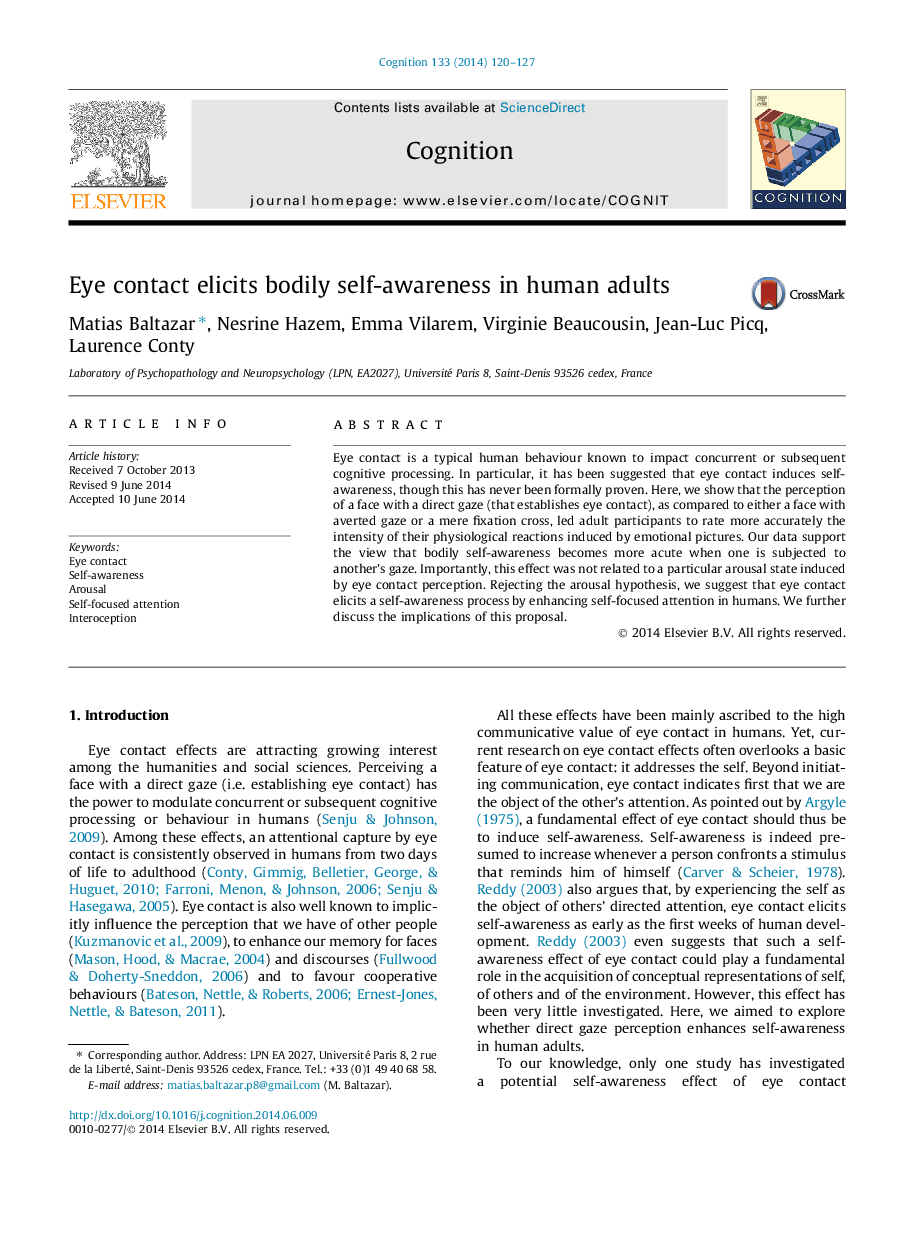| Article ID | Journal | Published Year | Pages | File Type |
|---|---|---|---|---|
| 10457728 | Cognition | 2014 | 8 Pages |
Abstract
Eye contact is a typical human behaviour known to impact concurrent or subsequent cognitive processing. In particular, it has been suggested that eye contact induces self-awareness, though this has never been formally proven. Here, we show that the perception of a face with a direct gaze (that establishes eye contact), as compared to either a face with averted gaze or a mere fixation cross, led adult participants to rate more accurately the intensity of their physiological reactions induced by emotional pictures. Our data support the view that bodily self-awareness becomes more acute when one is subjected to another's gaze. Importantly, this effect was not related to a particular arousal state induced by eye contact perception. Rejecting the arousal hypothesis, we suggest that eye contact elicits a self-awareness process by enhancing self-focused attention in humans. We further discuss the implications of this proposal.
Related Topics
Life Sciences
Neuroscience
Cognitive Neuroscience
Authors
Matias Baltazar, Nesrine Hazem, Emma Vilarem, Virginie Beaucousin, Jean-Luc Picq, Laurence Conty,
